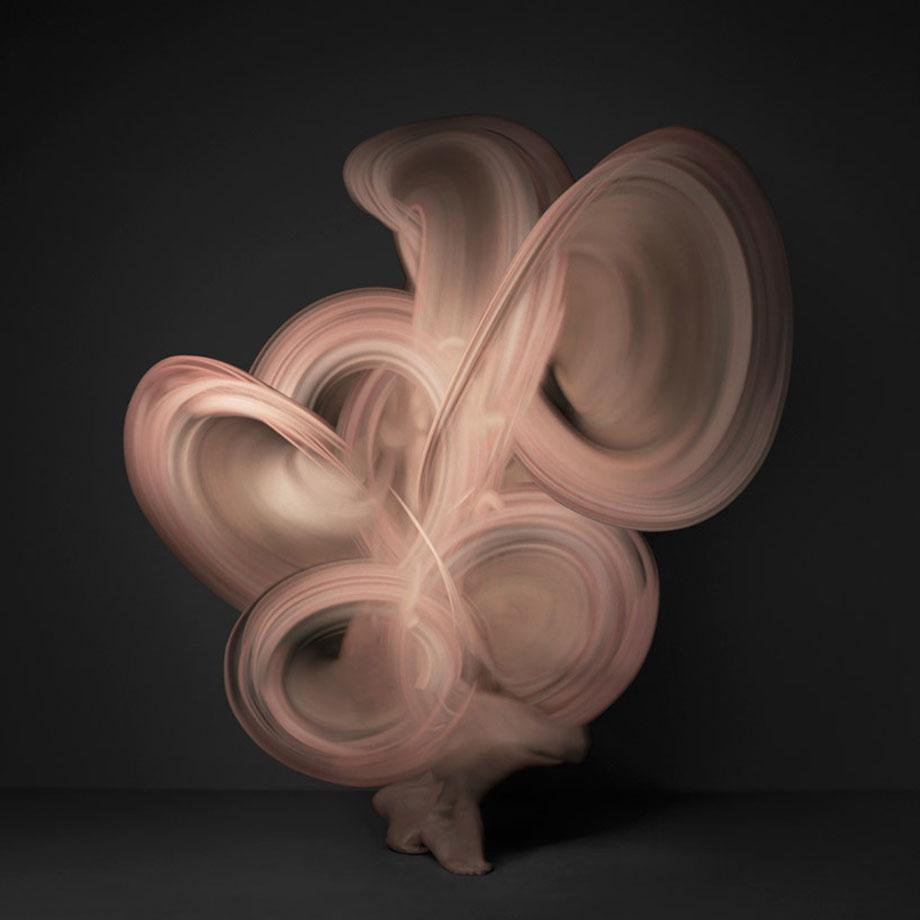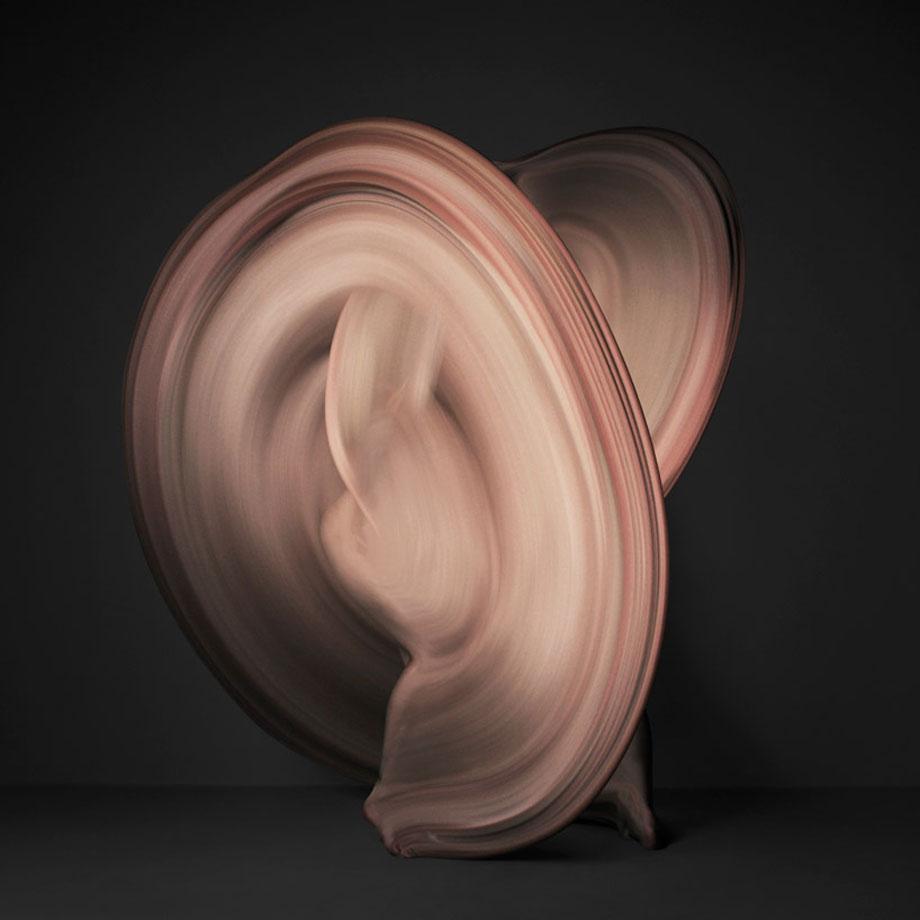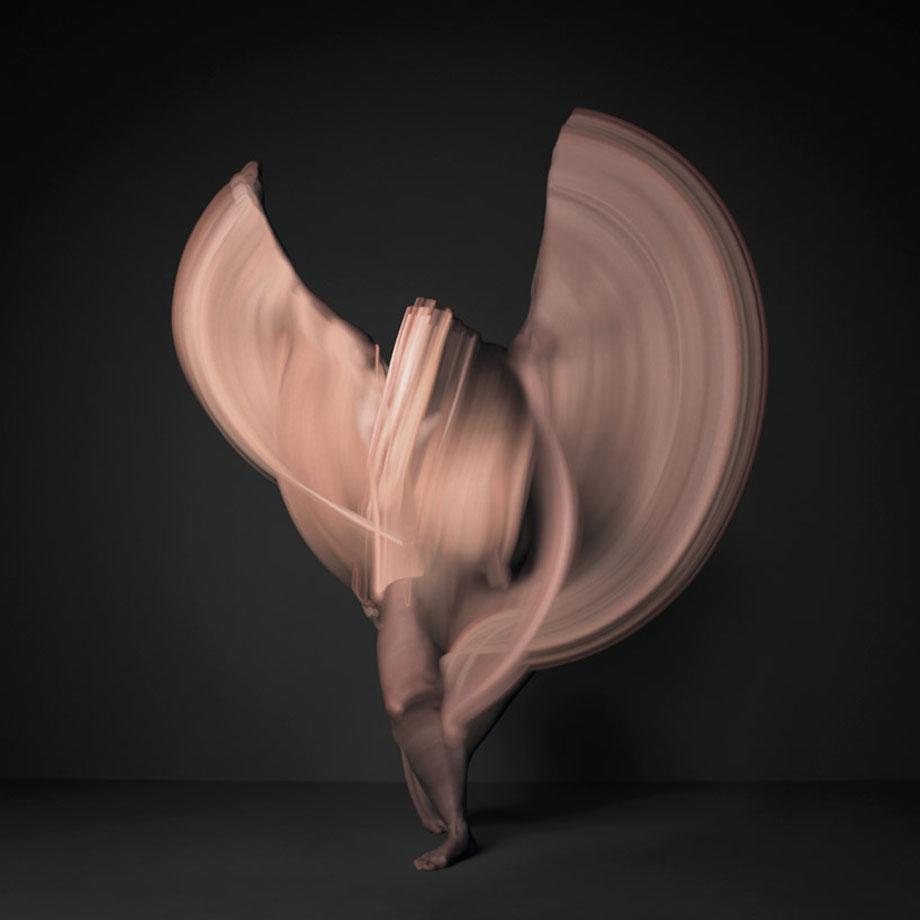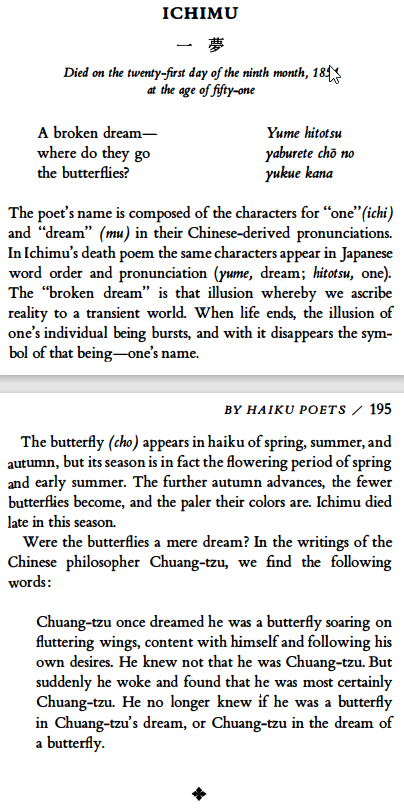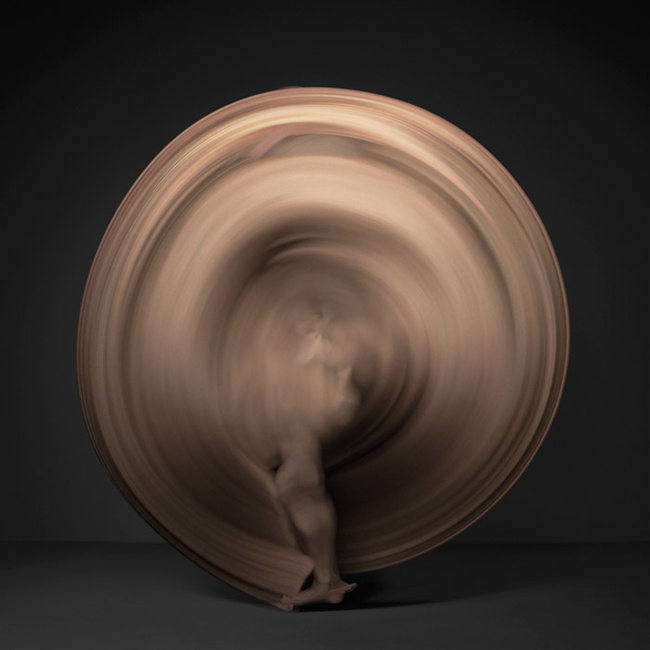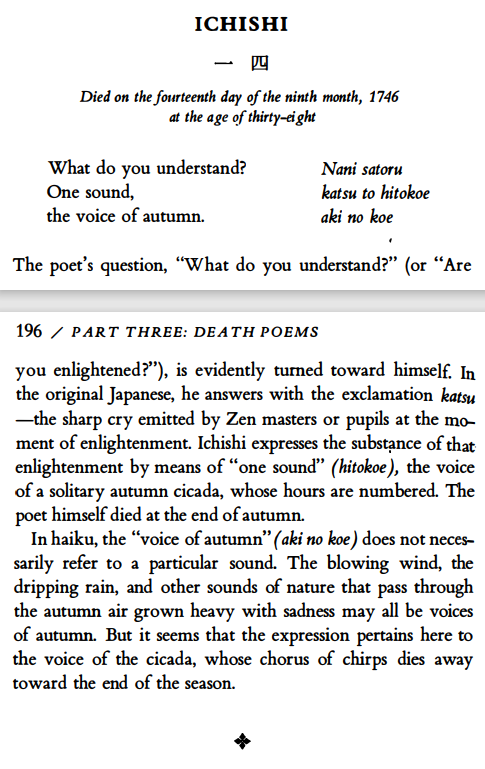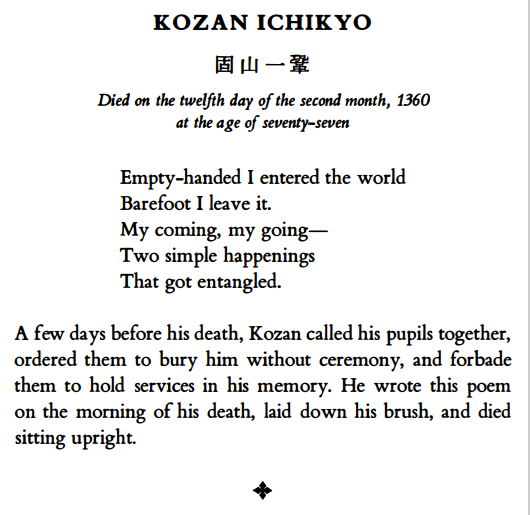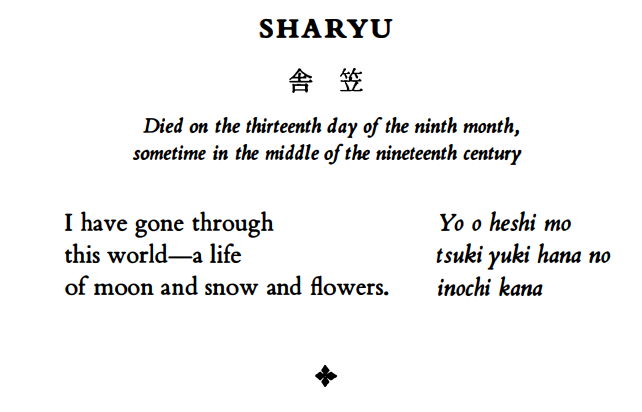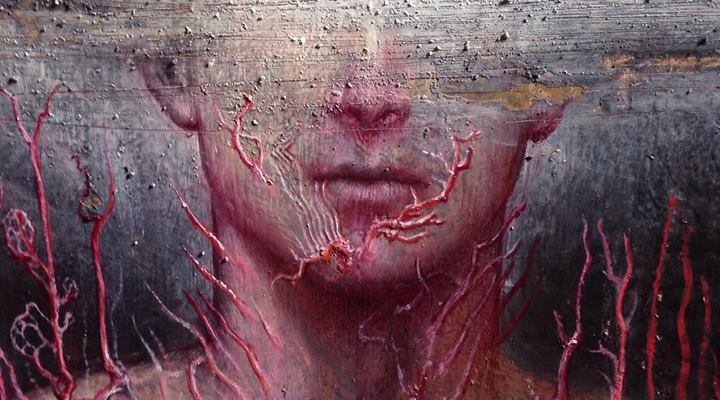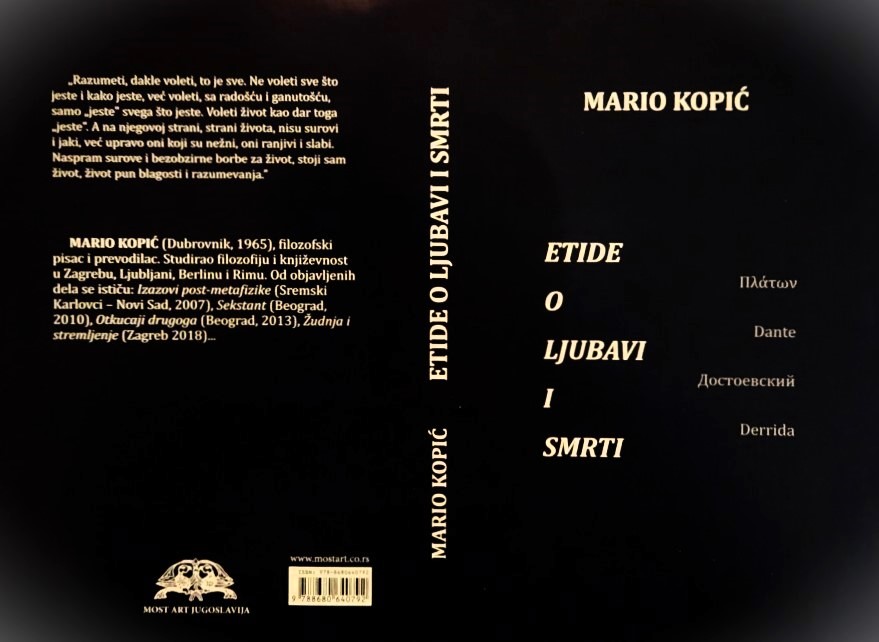The Notebooks of Joseph Joubert, with an introduction by Paul Auster
Introduction:
Invisible Joubert, by Paul Auster

Some writers live and die in the shadows, and they don’t begin to live for us until after they are dead. Emily Dickinson published just three poems during her lifetime; Gerard Manley Hopkins published only one. Kafka kept his unfinished novels to himself, and if not for a promise broken by his friend Max Brod, they would have been burned. Christopher Smart’s Bedlamite rant, Jubilate Agno, was composed in the early 1760s but didn’t find its way into print until 1939. Think of how many writers disappeared when the Library of Alexandria burned in 391 A.D. Think of how many books were destroyed by the Catholic Church in the Middle Ages. For every miraculous resurrection, for every work saved from oblivion by freethinkers like Petrarch and Boccaccio, one could enumerate hundreds of losses. Ralph Ellison worked for years on a follow-up novel to Invisible Man, then the manuscript burned up in a fire. In a fit of madness, Gogol destroyed the second part of Dead Souls. What we know of the work of Heraclitus and Sappho exists only in fragments. In his later years, Herman Melville was so thoroughly forgotten that most people thought he was long dead when his obituary appeared in 1891. It wasn’t until Moby-Dick was discovered in a secondhand bookshop in 1920 that Melville came to be recognized as one of our essential novelists.
The afterlife of writers is precarious at best, and for those who fail to publish before they die—by choice, by happenstance, by sheer bad luck—the fate of their work is almost certain doom. The American poet Charles Reznikoff reported that his grandmother threw out every one of his grandfather’s poems after he died—an entire life’s work discarded with the trash. More recently, the young John Kennedy O’Toole committed suicide over his failure to find a publisher for his book. When the novel finally appeared, it was a critical success. Who knows how many unread masterpieces are hidden away in attics or moldering in cellars? Without someone to defend a dead writer’s work, that work could just as well never have been written. Think of Osip Mandelstam, murdered by Stalin in 1938. If his widow, Nadezhda Mandelstam, had not committed the entire body of his work to memory, he would have been lost to us as a poet.
There are dozens of posthumous writers in the history of literature, but no case is stranger or more obscure than that of Joseph Joubert, a Frenchman who wrote in the last quarter of the eighteenth century and the first quarter of the nineteenth. Not only did he not publish a single word while he was alive, but the work he left behind escapes clear definition, which means that he has continued to exist as an almost invisible writer even after his discovery, acquiring a handful of ardent readers in every generation, but never fully emerging from the shadows that surrounded him while he was alive. Neither a poet nor a novelist, neither a philosopher nor an essayist, Joubert was a man of letters without portfolio whose work consists of a vast series of notebooks in which he wrote down his thoughts every day for more than forty years. All the entries are dated, but the notebooks cannot be construed as a traditional diary, since there are scarcely any personal remarks in it. Nor was Joubert a writer of maxims in the classical French manner. He was something far more oblique and challenging, a writer who spent his whole life preparing himself for a work that never came to be written, a writer of the highest rank who paradoxically never produced a book. Joubert speaks in whispers, and one must draw very close to him to hear what he is saying. He was born in Montignac (Dordogne) on May 7, 1754, the son of master surgeon Jean Joubert. The second of eight surviving children, Joubert completed his local education at the age of fourteen and was then sent to Toulouse to continue his studies. His father hoped that he would pursue a career in the law, but Joubert’s interests lay in philosophy and the classics. After graduation, he taught for several years in the school where he had been a student and then returned to Montignac for two years, without professional plans or any apparent ambitions, already suffering from the poor health that would plague him throughout his life.
In May 1778, just after his twenty-fourth birthday, Joubert moved to Paris, where he took up residence at the Hôtel de Bordeaux on the rue des Francs-Bourgeois. He soon became a member of Diderot’s circle, and through his association with Diderot was brought into contact with the sculptor Pigalle and many other artists of the period. During those early years in Paris he also met Fontanes, who would remain his closest friend for the rest of his life. Both Joubert and Fontanes frequented the literary salon of the countess Fanny de Beauharnais (whose niece later married Bonaparte). Other members included Buffon, La Harpe, and Restif de la Bretonne.
In 1785, Fontanes and Joubert attempted to found a newsletter about Paris literary life for English subscribers, but the venture failed. That same year, Joubert entered into a liaison with the wife of Restif de la Bretonne, Agnès Lebègue, a woman fourteen years his senior. But by March of 1786 the affair had ended—painfully for Joubert. Later that year, he made his first visit to the town of Villeneuve and met Victoire Moreau, who would become his wife in 1793. During this period Joubert read much and wrote little. He studied philosophy, music, and painting, but the various writing projects he began—an appreciation of Pigalle, an essay on the navigator Cook—were never completed. For the most part, it seems that Joubert watched the world around him, cultivated his friendships, and meditated. As time went on, he turned more and more to his notebooks as the place to develop his thoughts and explore his inner life. By the late 1780s and early 1790s, they had become a serious daily enterprise for him. At first, he looked upon his jottings as a way to prepare himself for a larger, more systematic work, a great book of philosophy that he dreamed he had it in him to write. As the years passed, however, and the project continued to elude him, he slowly came to realize that the notebooks were an end in themselves, eventually admitting that “these thoughts form not only the foundation of my work, but of my life.”
Joubert had long been a supporter of revolutionary views, and when the Revolution came in 1789, he welcomed it enthusiastically. In late 1790, he was named Justice of the Peace in Montignac, a position that entailed great responsibilities and made him the leading citizen of the town. By all accounts, he fulfilled his tasks with vigilance and fairness and was widely respected for his work. But he soon became disillusioned with the increasingly violent nature of the Revolution. He declined to stand for reelection in 1792 and gradually withdrew from politics.
After his marriage in 1793, he retired to Villeneuve, from then on dividing his time between the country and Paris. Fontanes had gone into exile in London, where he met Chateaubriand. Eventually, upon their return to Paris, Joubert and the two younger men collaborated on the magazine Mercure de France. Joubert would later help Chateaubriand with many passages of Le Génie du christianisme and give him financial help in times of trouble. During the early years of the nineteenth century, Joubert was surrounded by many of the most successful men and women in France, deeply admired for his lucid ideas, his sharp critical intelligence, and his enormous talent for friendship.
When he died in 1824 at the age of seventy, Chateaubriand, then Minister of Foreign Affairs, eulogized him in the Journal des débats: “He was one of those men you loved for the delicacy of his feelings, the goodness of his soul, the evenness of his temper, the uniqueness of his character, the keenness and brilliance of his mind—a mind that was interested in everything and understood everything. No one has ever forgotten himself so thoroughly and been so concerned with the welfare of others.”
Although Fontanes and Chateaubriand had both urged him to put together a book from his daily writings, Joubert resisted the temptation to publish. The first selection to appear in print, entitled Pensées, was compiled by Chateaubriand in 1838 and distributed privately among Joubert’s friends. Other editions followed, eliciting sympathetic and passionate essays by such diverse figures as Sainte-Beuve and Matthew Arnold, who compared Joubert favorably to Coleridge and remarked that “they both had favorably an ardent impulse for seeking the genuine from nature an art they thought about, and an organ for truth on all matters they thought about, and an organ for finding it and recognising it when it was found.” Those early editions all divided Joubert’s writings into chapters with abstract headings such as “Truth,” “Literature,” “Family,” “Society,” and so on. It wasn’t until 1938, in a two-volume work prepared by André Beaunier for Gallimard, that Joubert’s writings were presented in the original order of their composition. I have drawn my selections for this book from the nine hundred tightly printed pages of Beaunier’s scrupulous edition.
No more than a tenth of Joubert’s work is included here. In choosing the entries, I have been guided above all by my own contemporary and idiosyncratic tastes, concentrating my attention on Joubert’s aesthetic theories, his “imaginary physics,” and passages of direct autobiographical significance. I have not included the lengthy reading notes that Joubert made during his study of various philosophers—Malebranche, Kant, Locke, and others—or the frequent references to writers of his time, most of whom are unknown to us today. For convenience and economy, I have eliminated the dates that precede each entry.
I first discovered Joubert’s work in 1971, through an essay written by Maurice Blanchot, “Joubert et L’espace.” In it, Blanchot compares Joubert to Mallarmé and makes a solid case for considering him to be the most modern writer of his period, the one who speaks most directly to us now. And indeed, the free-floating, questing nature of Joubert’s mind along with his concise and elegant style have not grown old with the passage of time. Everything is mixed together in the notebooks, and reflections on literature and philosophy are scattered among observations about the weather, the landscape, and politics. Entries of unforgettable psychological insight (“Those who never back down love themselves more than they love the truth”) alternate with brief, chilling comments on the turmoil around him (“Stacking the dead on top of one another”), which in turn are punctuated by sudden outbursts of levity (“They say that souls have no sex; of course they do”). The more you read Joubert, the more you want to go on reading him. He draws you in with his discretion and honesty, with his plainspoken brilliance, with his quiet but utterly original way of looking at the world.
At the same time, it is easy to ignore Joubert. He doesn’t point to himself or bang on loud ideas. Those of us who love him know him more as a treasure secret, but in the 164 years since his writings were first made available to the public, he has scarcely caused a ripple in the world at large. This translation was first published by Jack Shoemaker of North Point Press in 1983, and the book failed to arouse anything but indifference on the part of American critics and readers. The book received just one review (in The Boston Globe), and sales amounted to something in the neighborhood of eight hundred copies. On the other hand, not long after the book was published, Joubert’s relevance was brought home to me in a remarkable way. I gave a copy to one of my oldest friends, the painter David Reed. David had a friend who had recently landed in Bellevue after suffering a nervous breakdown, and when David went to visit him in the hospital, he left behind his copy of Joubert—on loan. Two or three weeks later, when the friend was finally released, he called David to apologize for not returning the book. After he had read it, he said, he had given it to another patient. That patient had passed it on to yet another patient, and little by little Joubert had made his way around the ward. Interest in the book became so keen that groups of patients would gather in the dayroom to read passages out loud to one another and discuss them. When David’s friend asked for the book back, he was told that it no longer belonged to him. “It’s our book,” one of the patients said. “We need it.” As far as I’m concerned, that is the most eloquent literary criticism I have ever heard, proof that the right book in the right place is medicine for the human soul. As Joubert himself once put it in 1801: “A thought is a thing as real as a cannon ball.”
P. A. August 11, 2002
The Notebooks of Joseph Joubert (excerpt)

1783(?)
Do you want to know how thought functions, to know its effects? Read the poets. Do you want to know about morality, about politics? Read the poets. What pleases you in them, deepen: it is the truth.
In order to write perfectly, one must write and think in the same way a perfect man would write and think at the moment when all the faculties of his being were in perfect harmony. This situation would be possible in some state of soul in which all the passions were developed in all their force and to their full extent and combined in perfect equilibrium.
What makes the waters consoling is their movement and their limpidity . . . .
When a nation gives birth to an individual capable of producing a great thought, another is born who is capable of understanding and admiring it.
If I die and leave several scattered thoughts on important things, I beg in the name of humanity that those who see what has been left suppress nothing that seems at odds with accepted ideas. During my life I loved only the truth. I feel I have seen it in many great things. Perhaps one of these [words?] that I have dashed off in haste . . .
1784
If the earth must perish, then astronomy is our only consolation.
1785
I imitate the dove, and often I throw a blade of grass to the drowning ant.
1786
If there is one sad thing in the world, it is the poplar on the mountains . . . .
Every sound in music must have an echo; every figure must have a sky in painting; and we who sing with thoughts and paint with words, every sentence and each word in our writings must also have its horizon and its echo.
Thoughts form in the soul in the same way clouds form in the air.
1787
A work of genius, whether poetic or didactic, is too long if it cannot be read in one day.
Sad harvests . . .
The essential thing is not that there be many truths in a work, but that no truth be abused.
1789
It is not facts, but rumors that cause emotions among the people. What is believed creates everything.
Extension is the body of God, as Newton would readily say.
Mixture of dry and wet. Water swells before boiling.
1791
Are you listening to the ones who keep quiet?
A winter without cold and without fire.
The republic is the only cure for the ills of the monarchy, and the monarchy is the only cure for the ills of the republic.
. . . where the accusers are almost always the guilty ones.
The reading of Plato is like mountain air. It does not nourish, but it sharpens our faculties and gives us a taste for fine food.
Through memory we travel against time, through forgetfulness we follow its course.
In these times of trouble, one commits and suffers great evil.
We are in the world as words are in a book. Each generation is like a line, a phrase.
Writing is closer to thinking than to speaking.
1793
Wisdom is the strength of the weak.
His ink has the colors of the rainbow.
Let heaven forgive the wicked, after they have been punished.
In order to live, we need little life. In order to love, we need much.
It is necessary that something be sacred.
The good is worth more than the best.
What makes civil wars more murderous than other wars is that we can more easily accept having a stranger for an enemy than a neighbor; we do not want to keep the possibility of vengeance so near.
1794
Here is the desert. In this silence everything speaks to me: and in your noise everything falls silent.
***My son was born during the night of the 8th and 9th, at two and quarter hours past midnight.
That he one day remember the pains of his mother!
Big words. Claim too much attention.
All truths are double or doubled, or they all have a front and a back.
1795
These coups d’etat are necessary, you tell me. I answer you, what is sinister and criminal is never necessary at any time.
Children always want to look behind mirrors.
Love and fear. Everything the father of a family says must inspire one or the other.
1796
The ancients knew about anatomy only through war. It was on the battlefields that they learned all they knew about it.
Passions come like a smallpox and disfigure this original beauty.
He must confess his darkness.
Give me a morality that equally suits the healthy and the sick, men and women, children, adults, and old people.
Everything that cannot grow diminishes, even the qualities that are passed on. Is this true?
The first part and last part of human life are what is best about it, or at least what is most respectable. The one is the age of innocence, the other is the age of reason. You must write for these two ages and banish from your mind and your books that which does not suit one or the other.
I love to see two truths at the same time. Every good comparison gives the mind this advantage.
… His necessity invincibly proves his existence.
Illusion is in sensations. Error is in judgments. We can know truth and at the same time take pleasure in illusion.
One loves to say what he knows, and the other to say what he thinks.
Pleasures are always children, pains always have wrinkles.
The imagination is the eye of the soul.
There are truths that cannot be apprehended in conversation.
What comes through war is given back through war. All spoils will be retaken, all plunder will be dispersed. All victors will be defeated and every city filled with prey will be sacked in its turn.
Plato. He is an author whose ideas cannot be understood until they have become our own.
Take us back to the time when wine was invented . . .
The penchant for destruction is one of the ways used for conserving the world.
When a thought gives birth to obscurity, it must be rejected, renounced, abandoned.
1797
In order to be known, he would have to make us immortal and give us another life.
To compensate absence with memory.
A flower that cannot bloom, a bud that cannot open.
To seek wisdom rather than truth. It is more within our grasp.
Lovers. Whoever does not have their weaknesses cannot have their strenghts.
Clarity of mind is not given in all centuries.
We do not write our books in advance, we do them as we write them. What is best about our works is hidden by scaffoldings: our texts are filled with what must be kept and what must be left behind.
In metaphysics, the art of writing consists of making sensible and palpable what is abstract. To make abstract what is palpable is its vice and fault. It is the fault of those we have so mistakenly called metaphysicians in this century.
The imagination has made more discoveries than the eye.
Psalms. Read them with the intention of praying and you will find them beautiful. Eh! Doesn’t every reading demand a readiness of mind that is special and appropriate to it?
When men are imbeciles, the one who is mad dominates the others.
God made life to be lived (the world to be inhabited) and not to be known.
The thoughts about which we can say: “There is rest in this thought.” This image is encouraging.
The dying inherit the dead.
All these philosophers are no more than surgeons.
Resignation is a hundred times easier than courage, for it has a motive outside of us and courage does not. If both diminish evil, let us the one that diminishes it the most. (Outside us, that is to say beyond our will.)
Remember to let your ink grow ripe.
Around every flame there must be a void, so there can be light. Without space, no light.
1798
The sign then makes us forget the thing signified.
What good is modesty? – It makes us seem more beautiful when we are beautiful, and less ugly when we are ugly.
Beauties that leave nothing to the imagination.
The only good in man is his young feelings and his old thoughts.
Stars more beautiful to the eye than to the telescope that robs them of their illusions.
In the same way that man was made in the image of God, the earth was made in the image of heaven.
. . . Pleasure of being seen from afar.
A century in which the body has become subtle, in which the mind has become coarse.
Among the trhee extensions, we must include time, space, and silence. Space is in time, silence is in space.
To be in one’s place, to be at one’s post, to be part of the order, to be content. Not to murmur of suffering, to be incapable of being unhappy.
Too much talk (they say). Nota bene: too much writing.
It is impossible to love the same person twice.
1799
Like Daedalus, I am forging myself wings. I construct them little by little, adding one feather each day.
Illusion or play. Everything agreeable is in them.
When you want transparency, the finite, the smooth and the beautiful, you must polish for a long time.
Lions, bulls; images of strength are everywhere, whereas images of wisdom are nowhere.
We must treat our lives as we treat our writings, put them in accord, give harmony to the middle, the end, and the beginning. In order to do this we must make many erasures.
Dreams of love. Those of ambition. The dreams of piety.
Arrival of Bonaparte.
Old men, when neglected, have no more wisdom.
1800
Each man thinks not what he has been told but what he understands.
The word, in fact, is disembodied thought.
Antiquity. I prefer ruins to reconstructions.
It would be difficult to be scorned and to live virtuously. We have need of support.
All ardent people have something mad about them, and all cold people have something stupid.
Analysis: in morality, in cooking.
Descartes’s noises. His physics has too much commotion. Newton’s offers a more silent world, but too naked, too lifeless.
He who has the abstract idea of a thing understands it; but only he who can make it understood is able to make it imaginable. Yes.
There are truths that instruct, perhaps, but they do not illuminate. In this class are all the truths of reasoning.
The old age of men resembles their childhood. Without exception.
We are worth more when someone looks at us. And, because of this, an eye is always watching us.
Let us remember this. – What? – That it is not the sun in the sky that we see, but the sun at the back of our retina.
To know: it is to see inside oneself.
Everyone makes and has need of making a world other than the one he sees.
Leibnitz and Spinoza. – The realm of abstractions. The first offers its perfection, the second nothing but its flaws.
To analyze, to deconstruct. – What they so emphatically call analysis is what we would call division when speaking simply.
If prayer does not change our destiny, it changes our feelings – which is no less useful.
How admiration contributes to the peace of the human mind and is necessary to it.
Every house: temple, empire, school.
In our writings thought seems to move like a man who is walking straight ahead. On the other hand, in the writings of the ancients, thought seems to move like a bird that glides and advances by turning round and round.
Everything seems naked to eyes that have never seen without veils. Nothing can please them for very long.
1801
History, like perspective, has need of distance.
Close your eyes and you will see.
Vision is made by the joining of two lights. – Add. March 19: And if objects shine toward us, we shine toward objects.
Christianity. We cannot speak against it without anger, nor speak for it without love.
It is the bell that moves, but you who ring. It is the sun that shines, but you who see. The nourishment is in the meat, but the taste is in you. Fire gives or creates warmth, but it is you who feel it.
Harmony is in the one who listens: yes, as effect; but not as cause.
I like Leibnitz’s expression the soul carries the body. And observe that everywhere and in everything, what is subtle carries what is compact; and what is light holds in suspension all that is heavy. Admit it, at least in the sense of – and as the most beautiful conception of the human mind.
This stone in my hand, it demands glory.
A thought is a thing as real as a cannon ball.
Too seek the truth. But, as you are seeking and as you are waiting, what will you do, what will you think, what will you practice, what rules must you follow?
The spectacle has changed, but our eyes are the same.
Everything beautiful is indeterminate.
Beautiful works. Genius begins them, but labor alone finishes them.
Of the unfortunate need to please oneself.
Newton. How ripe his apple was.
It seems more difficult to me to be a modern than to be an ancient.
1802
Floods of passions. It would nevertheless be better to raise the dikes for them.
From this day forward, to give up Locke, and to agree never to read another word he has written.
The only thing Newton invented was the how much.
The things we believe are difficult to conceive of because it is difficult to talk about them.
In fact everything (according to Descartes) happens through figure and movement. That is the fixed point from which his mind proceeded to all its operations, the result of his explanations. That is his doctrine, summed up in a few words. Goodbye, Descartes!
You say that books are soon read, but they are not soon understood. To digest them, etc. To understand a beautiful or great thought perhaps requires the same amount of time it takes to have it, to conceive of it. To penetrate a thought and to produce a thought are almost the same action.
Piety is a cure.
Imagined harmonies. If they are not a physical fact, they are at least a human fact, and because of that, a reality.
If superior intelligence wanted to give an account of human things to the inhabitants of heaven and to give an exact idea of them, he would express himself like Homer.
I pass my life chasing after butterflies – considering the ideas that conform to generally held ideas as good, and the others simply as mine.
That is true, a king without a religion always seems a tyrant.
The revolution chased my mind from the real world by making the world too horrible for me.
It is even easier to be wrong about truth than about beauty.
It seems that Plato has too much and that there is too little in Aristotle. From which, in the first, an abundance carried to superfluity, and in the other a precision or brevity that leads to obscurity.
Speak more softly to be better heard by a deaf public.
To call everything by its name.
Illusion based on reality, that is the secret of the fine arts – in fact, all of art.
We speak to ourselves in metaphors. We are naturally led to it as a method of better understanding ourselves and of retaining our thoughts more easily – which we then label in a kind of container.
“In a container of light.” Y.
There are only two kinds of beautiful writing, that which has a great fullness of sound, meaning, soul, warmth, and life, and that which has a great transparency.
We have it in our soul, but we hardly ever put into our life what we put into our writings.
In every piece of music, not everything is music, and in every poem not everything is poetry.
The first act of a man who finds God displeasing is to say to himself: I must arrange the world without him.
Imagining is good, provided you do not believe you see what can only be imagined.
Lost spirit. Judges without justice, priests without religion.
Sensibility that comes from the nerves. Opinions have a great influence on it and can led to cruelty. Examples in the revolution.
(At the baths.) Piety defends us from ourselves; modesty defends us from others.
(5 in the morning. Insomnia.) Everything must have its sky. To be put everywhere.
All beautiful words are susceptible to more than one meaning (or signification).
The phrase: “One dies because one has lived.”
Sad science that teaches blind men to speak of light and colors and that persuades them they can even make judgments about these things.
1803
Nothing is more difficult for children than reflection. That is because the last and essential destination of the soul is seeing, is knowing, and not reflecting. Reflection is one of the labors of life, a means of getting somewhere, a path, a passage, and not a center. Everything always tends towards its final destination. To know and be known, these are the two points of rest. This will be the happiness of souls.
. . . but in the end a year comes when you find that you are getting old.
To know how to walk in the night, to have a goal, to reach it in the darkness, the shadows.
Everything is made through images. They enter us through all the other senses, as through the eye. An echo (they say) is an image of the voice. All our affections are produced by images of touching. Our whole body is a mirror.
Someone said of an asthmatic who was being very sweet and patient in his suffering. “One would like to breathe for him.”
Everything must be precise in it and yet nothing should be too tight.
. . . because, what must be put in the work and what must be left out is infinite.
The thoughts that come to us are worth more than the ones we seek.
To know what one must forbid oneself.
Chateaubriand. We inhabit the same regions but we do not bring back the same curiosities.
What we write with difficulty is written with more care, engraves itself more deeply.
All nightingales do not sing equally well, nor do all roses smell the same.
Music has seven letters, writing has twenty-six notes.
It is difficult for me to leave Paris because I must separate myself from my friends; and difficult for me to leave the country because I must separate myself from myself.
The silence of the pen and its advantages. Force builds up in it. Precision must flow out of it. A chatterer fallen quiet. When silence comes from force, it should make itself felt in discourse. What is hasty would be bad upon reflection. – To know how to write – to be capable of not writing.
Everything has its poetry.
To write, not only with few words, but with few thoughts.
Two sorts of truths. I. what must be thought, II: what must be done.
They speak to the ear, I want to speak to the memory.
Attention is sustained (in poetry) by the amusement of the ear. Prose does not have this advantage. Might it have? I try. But I think not.
1804
Then there comes into languages a facility and an overabundance that, if you want to become a great writer, you must oppose with difficulties, with a sure taste, a meditated choice. When you find a torrent, obstacles must be places in it.
Strength in organization and weakness in carrying out the material. Like an automaton whose elasticity would be exquisite if the wood were not too thin or too fragile.
There I am: a flattering self-portrait
To survive one’s passions and not one’s strengths. Happy.
It is beautiful enough to be seen, but not to be dreamed.
God. There are many things that should be left in life and not put into books.
It is a key; what difference if it is golden or iron? It can open things.
When the author speaks to himself instead of speaking to the reader.
These thoughts form not only the foundation of my work, but of my life.
I wanted to bypass words, I disdained them: words have had their revenge – through difficulty, etc.
To the question: is he guilty? must be added another question: is he incorrigible?
The time I once lost in pleasure I now lose in suffering.
When you write easily, you always think you have more talent than you really do.
1805
Those thoughts that come to us suddenly and that are not yet ours.
For simple light is perhaps still more beautiful than colors.
Glory. Lovelier to desire than to possess.
All things that are easy to say have already been perfectly said.
To judge things of taste, we must give ourselves time to taste them.
The soul speaks to itself in parables.
All grace (decor) comes from patience. And, consequently, from some force exerted on itself.
We are afraid of having and showing a small mind and we are not afraid of having and showing a small heart.
One ruins the mind with too much writing. – One rusts it by not writing at all.
One must know how to enter the ideas of others and how to leave them. One must know how to leave one’s own ideas and how to come back to them.
In everything mathematical there is something imperishable, because there is nothing living.
A drop of light is worth more than an ocean of darkness: is worth more, I say, be it given or received.
What man knows only through feeling can be explained only through enthusiasm.
Terrestrial by birth, celestial by origin, only our body is of this world.
1806
I don’t like to write anything down on paper that I would not say to myself.
The important business of man is life, and the important business of life is death.
To descend into ourselves, we must first lift ourselves up.
Illusions come from heaven and mistakes come from us.
Tacitus. And all those words that are obscure only once.
– in these times when, to express ourselves well, we must speak in a way the others do not.
. . . burdened with the unbearable weight of ourselves.
Facility is the enemy of great things.
Undoubtedly, philosophy caused the Revolution. But what caused philosophy? Theological arrogance.
Those who never back down love themselves more than they love the truth.
There must be several voices together in one voice for it to be beautiful. And several meanings in one word for it to be beautiful.
It is through the flesh that we judge what is hard and what is soft.
I stop when I see no more light; it is impossible for me to write by feeling my way.
– for wine is a wet fire.
1807
. . . all the pleasures it does not bless (religion).
Why in language and in the course of all violent passions there is always something familiar and naive.
Beauty is something animal, the beautiful is something celestial.
Little people have few passions, they hardly have anything but needs.
Speak for the ear and write for the memory.
Great minds are those that disguise their limits, that mask their mediocrity.
The first poets or writers made madmen wise. The last seek to make wise men mad.
When the last word is always the one that offers itself first, the work becomes difficult.
Heaven gave strength to my mind only for a time – and this time has passed.
Those for whom the world is not enough: saints, conquerors, poets, and all lovers of books.
A nail, to hang his thoughts on.
1808
I am like Montaigne: “unsuited to continuous discourse.”
Wicked people have nothing human about them except passions: they are almost their virtues.
To be tragic, misfortunes must be rare.
– maxims, because what is isolated can be seen better.
To finish! What a word. We finish nothing when we stop, when we say we have come to the end.
What makes us look for a long time is that we do not look where we should or that we look where we should not. But how to look where we should when we do not even know what we are looking for? And this is what always happens when we compose and when we create. Fortunately, by straying in this fashion, we make more than one discovery, we have good encounters, and often are repaid for what we have looked for without finding by what we have found without looking for.
Here I am outside civil things, in the pure region of Art.
Necessity can make a doubtful action innocent, but it cannot make it commendable.
-and the pernicious habit of accepting pleasures without gratitude.
To be the soul of a body, but not the head, that is a noble ambition.
Sloth waiting for inspiration.
The breadth of the mind is attention.
The paper is patient, but the reader is not.
Animals love the people who talk to them.
The republic of ants and the monarchy of bees.
If we exclude the idea of God, it is impossible to have an exact idea of virtue.
Voltaire had the soul of a monkey and the mind of an angel.
Freedom. The freedom to do something well. There is no need of any other kind.
Truths. The truths that teach us to act well and to live well. There is no need of any other kind.
Abuse of words, foundation of ideology.
The punishment of those who have loved women too much is to love them forever.
Tenderness is the repose of passion.
1809
– because the sublime gives a useful pleasure.
Whoever consults the light within himself (it is in everyone) excels at judging the objects this light illuminates.
The ellipsis, favorable to brevity, saves time and space.
A work is perfectly finished only when nothing can be added to it and nothing taken away.
He must not only cultivate his friends, but cultivate his friendships within himself. They must be kept, cared for, watered.
1810
All cries and all complaints exhale a vapor, and from this vapor a cloud is formed, and from these heaped-up clouds come thunder, storms, the inclemencies that destroy everything.
Let’s go; and follow your mistake.
Anger, which purges resentment.
1812
To let the reader sometimes complete the symmetry between words and to do no more than suggest it.
Ash Wednesday.
The face. After the face, action. Between the two, attitudes. But before everything, the idea.
Having found nothing worth more than emptiness, he leaves space vacant.
When I had the strength, I did not have the patience. I have the patience today and I no longer have the power.
– and to destroy my memory by my presence.
Poetry made with little matter: with leaves, with grains of sand, with air, with nothings, etc.
Of those who have a muse and those who have only their soul.
1813
Silence. – Joys of silence. – Thoughts must be born from the soul and words from silence. – An attentive silence.
In political institutions, almost everything we call an abuse was once a remedy.
“Leave behind endless hope and vast thoughts,” says the poet. I no longer have vast thoughts.
In order to know men, something must be chanced. Who risks nothing of himself knows nothing.
There are, following Plato’s idea, souls that not only do not have wings but do not even have feet (for progress or consistency) or hands (for work).
Egregie fallitur. He is wrong, but nobly, intelligently, with grace, with spirit, with wisdom and much beauty.
There is a residue of wisdom (as there is a residue of madness); and in human wisdom this residue purified by old age is perhaps the best thing we have.
A frightening thing, which is perhaps true: “oldmen want to survive.”
People that have overthrown geography ( like winds, storms, and torrents).
I can do something well only slowly and with great effort.
Our moments of light are all moments of happiness.
When it is bright in our mind, the weather is good.
1814
Nothing is better than a justified enthusiasm.
What leads us astray in morality is an excessive love of pleasure; and what stops us or holds us back in metaphysics is a love of certainty.
More than once I have brought the cup of abundance to my lips; but it is a water that has always escaped me, (Another version: I have often brought to my lips the cup that holds abundance; it is a water that has always escaped me.)
Almost all men prefer danger to fear. Some prefer death to danger and to pain. This is because fear, danger, and pain disturb reason. The horse throws himself into the precipice to escape the spur.
In literature, beauty must not be fabricated.
Let us look for our lights in our feelings. There is a warmth in them that contains many clarities.
Fire, ignition, and brightness; the body, its shadow and penumbra; sound, echo, and half-echo: everything has some shadow, some glow or reverberation. (Reflection.)
Neither in the arts, nor in logic, nor in life should an idea in any way be treated as a thing.
There is nothing perfectly true for man; I mean in human opinions. Just as there is nothing perfectly round.
Our life is of woven wind.
To speak to God of everything; to dare to question him and to be attentive to what he says about everything. But sometimes we take our own voice for that of God.
Retreat often into your sphere, rest yourself in your center, plunge yourself into your element: good advice, which must be remembered.
Of the sincerity of things. To see it. Truth consists of this.
1815
I confess that I am like an aeolian harp – which gives off some pretty sounds but can play no songs.
Too much harmony. Prose can have too much of it; also too much sweetness. And this is a very seductive fault, at first very agreeable, but unbearable and ridiculous over the long term.
Varnish (in style) makes a glaze (for the reader).
Tormented by the cursed ambition always to put a whole book in a page, a whole page in a sentence, and this sentence in a word. I am speaking of myself.
You go to truth by way of poetry and I come to poetry by way of truth.
What is pleasing always has something chanced about it.
Without fixed ideas, no fixed feelings.
When we find what we have been looking for, we don’t have time to say it. We must die.
All foods are in fact good for someone who is hungry, but not for someone who has no appetite.
Leave dreams of the imagination time to evaporate.
France destroyed by its philosophers.
It is not light that burns, that purifies, that consumes, that divides, and that recomposes: it is fire. And this fire we are talking about always follows light.
Of what must be said and what must not be said. The importance of knowing.
Old age and its mask.
When you no longer love what is beautiful, you can no longer write.
1816
Plato. The poetic spirit that gives life to the languors of his dialectic. He is lost in the void; but we can see his wings beating, we can hear their noise. His imitators lack these wings.
1818
You want to talk to someone: first open your ears.
I am an aeolian harp. No wind has passed through me.
Then, God withdrew his forces into himself, and we grew old.
If you want to think well, to write well, to act well, first make a “place” for yourself, a “true place”. Because we lack true places, we put our thoughts outside the true light and our conduct outside order.
1819
Happy is the man who can do only one thing: in doing it, he fulfills his destiny.
Don Quixote going to Tobosa and talking to Sancho as Socrates did to his disciples; and this is not ridiculous and does not even seem out of place.
Because they know all the words, they think they know all the truths.
There are things we can speak of only in writing, that we cannot know except when thinking of writing them down, and that we cannot, however, think of writing except when we know them in advance.
1823
And perhaps there is no advice to give a writer more important than this: – Never write anything that does not give you great pleasure.
Spaces . . . I would almost say . . . imaginary, existence is so much in them, etc.
1824
Nota. – The true – the beautiful = the just – the holy







